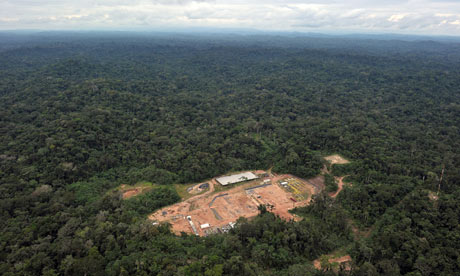 A recent publication “Lessons Learned from Community Forestry in Latin America and their Relevance for REDD+” by the Forest Carbon, Markets and Communities assessed decades of community forestry in the region
and the significance for REDD+. Community forestry recognises the rights of
communities to establish and enforce rules governing forest use and access and
has been particularly successful in the Latin American region.
A recent publication “Lessons Learned from Community Forestry in Latin America and their Relevance for REDD+” by the Forest Carbon, Markets and Communities assessed decades of community forestry in the region
and the significance for REDD+. Community forestry recognises the rights of
communities to establish and enforce rules governing forest use and access and
has been particularly successful in the Latin American region.
Some key findings from community forestry for REDD+
included:
Empowerment of Communities: The recognition of the rights
and responsibilities of communities to establish and enforce rules regarding
forest access and use, which is supported by tenure rights and clear legal
frameworks for communities. Suitable approaches to empower communities include
free, prior and informed consent (FPIC) and tools such as community protocols
which can put communities in the driving seat and create conditions for
“doing”.
Governance and Stakeholder Engagement: Self-generated
community institutions are generally more effective and should be encouraged.
Supportive sectorial polies in areas such as agriculture and macroeconomics are
important as are reforms that empower communities. Identifying and applying
legal instruments that empower, promoting rights-based approaches and recourse
mechanisms are also crucial.















